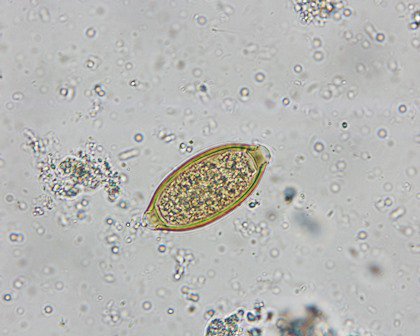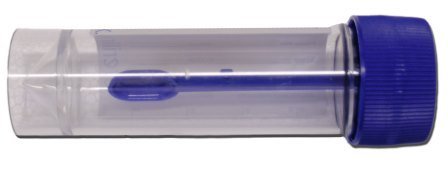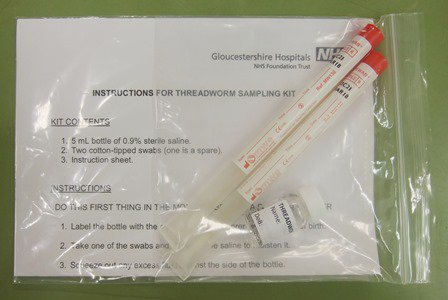Parasite investigations (faeces stool ova cysts worms giardiasis amoebae cryptosporidium threadworm enterobius)

Routine enteric parasitology testing is performed on stool samples submitted from community and out-patient settings and on in-patients within the first 3 days of admission. Samples from in-patients collected more than 3 days after admission are generally only examined for Clostridium difficile toxin.
Faeces samples are routinely investigated for Cryptosporidium and Giardia lamblia
- Further examination (e.g. concentration) will be performed based on clinical information and history of foreign travel
- Collect 3 stool samples over no more than a 10 day period and no more than one within a single 24 hour period. A sample every other day is ideal.
- Investigation of "hot stools" for amoebic dysentry is available on request
- Stool samples are not recommended for threadworm investigation. A perianal swab is the preferred sample.
Macroscopic examination of worms, worm segments, ticks, lice etc, can be undertaken. Please submit in a sterile container.
Advice on individual cases can be obtained from the Consultant Microbiologist
See also:
Sample requirements

For liquid stools do not fill pot more than half full
Stool samples are not recommended for threadworm investigation

Threadworm sampling kit
Kits are available from the laboratory on request
Required information
- Travel history - state countries and dates of travel and return
- Date of onset, length of history
- Association with known cases
- Immunocompromise
- Date and time of sample collection
Storage/transport
Store and transport at room temperature. Samples should be transported to the laboratory with minimal delay.
Turnaround time
1 - 3 days